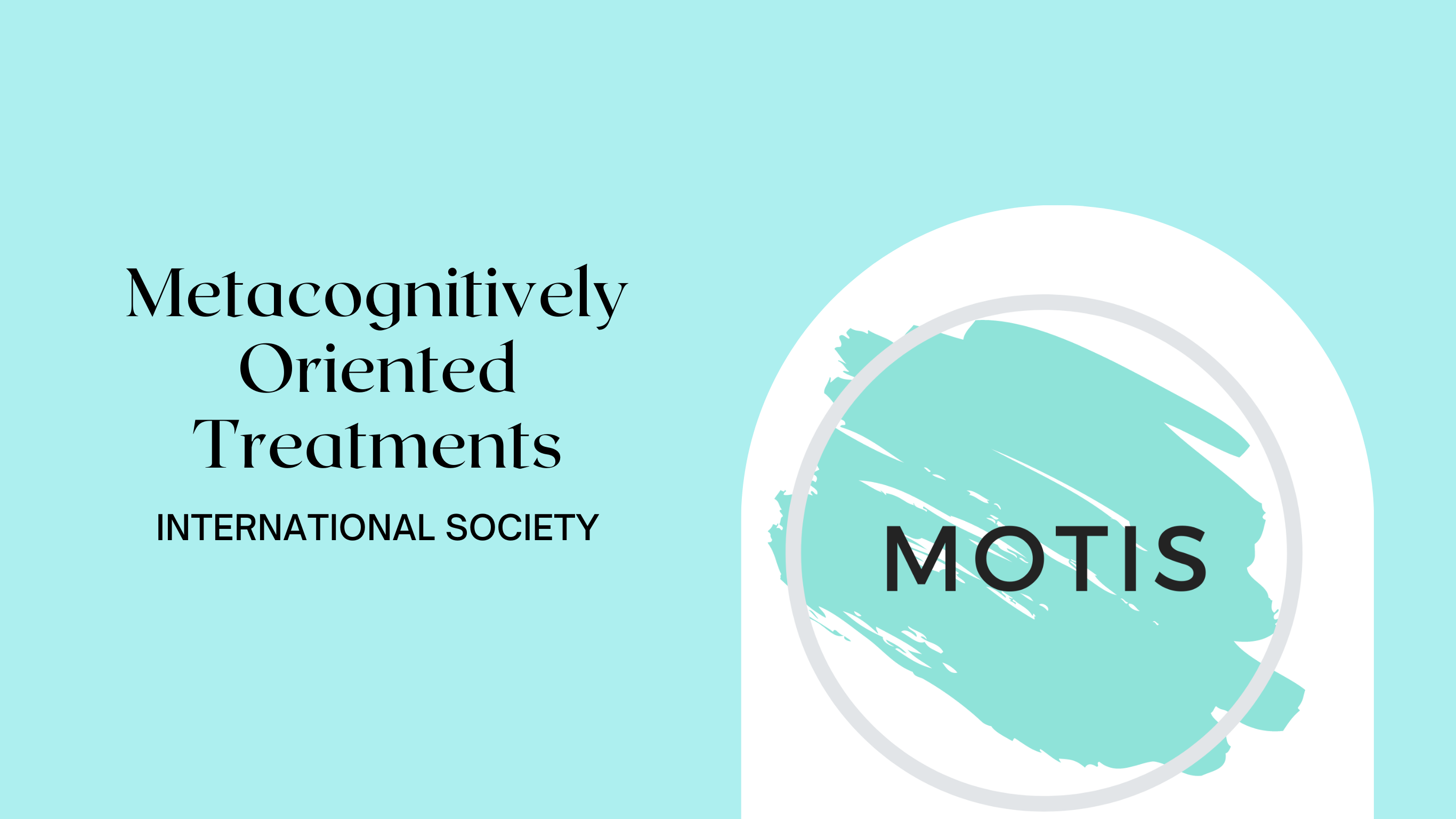MERIT (Metacognitive Reflection and Insight Therapy) is a manual-based model of psychotherapy designed for people in the process of recovery from schizophrenia and other forms of severe mental illness. Developed by Paul Lysaker, PhD and colleagues, MERIT is a model of psychotherapy amenable to clinicians working from a variety of orientations who are interested in helping their clients to improve their metacognitive capacities.
Basic Premises
- Metacognition is the ability to form integrated ideas about one’s self and others and to use that capacity to respond to life challenges.
- Metacognitive deficits observed in schizophrenia and other severe mental illnesses interfere with the ability to make sense of one’s life and to chart a course to recovery.
- MERIT’s intent is to help clients to form more integrated ideas about themselves and others with the goal of increasing their ability to respond more adaptively to social and psychological challenges and ultimately live their lives in a richer and more rewarding way.
Psychotherapy Model
MERIT uses the therapy relationship as a self-exploratory platform to help clients to recognize and integrate the range of personal experiences including memories, hopes, dreams, emotions, and beliefs and integrate them into more complex ideas about self and others. MERIT stresses the use of targeted psychotherapy interventions tailored for the client’s current level of metacognitive functioning. This is guided by the use of a formal assessment of the client’s level of metacognitive ability in treatment sessions. MERIT supports the use of thoughtful and creative therapist behavior because it is based on integrative principles, not step-by-step procedures or a predetermined course of treatment.
Manualized and Research-Based
While flexible, MERIT is a formalized treatment approach. MERIT treatment manuals and assessment tools as well as psychotherapy training and ongoing clinical supervision are available to qualified mental health practitioners.
TREATMENT
MERIT is a set of guiding principles for individual psychotherapy for persons with serious mental illness. It is a protocol but its implementation is framed within the context of the therapeutic alliance. MERIT needs to be deployed in a genuine, respectful relationship and it is expected that therapists will incorporate their clinical experience and stylistic preferences into the delivery of the protocol. MERIT is intended to help patients to develop their metacognitive capacity by repeatedly practicing metacognitive acts by having therapists think with patients about their sense of themselves and others and ultimately using that knowledge to respond to life’s challenges.
MERIT involves eight related activities or elements, each of which provides a different opportunity for patients to reflect about their sense of self and others.
1. Agenda involves attending to the patient’s immediate wishes and desires.
2. Dialogue involves therapists’ sharing their thoughts about patients’ mental activities and behaviors without overriding patients’ agendas.
2. Narrative focus involves attending to and reflecting with patients’ about their sense of themselves and others within the flow of life.
3. Psychological problem involves attending to patients’ sense of the psychological and social challenges they face.
4. Reflection upon interpersonal process involves attending to the patients’ sense of how they are relating to the therapist
5. Perceptions of change involves the therapist attending to the patie
CERTIFICATION
The MERIT Institute provides training to qualified professionals. CONTACT MERIT INSTITUTE for more information on training opportunities.
GENERAL REFERENCES
[see also MERIT INSTITUTE website]
Books and Edited Volumes
The Recovery of the Self in Psychosis: Contributions from Metacognitive and Mentalization Based Oriented Psychotherapy. Ilanit Hasson-Ohayon & Paul Lysaker PH (Eds.) NY NY: Routledge, (2021).
Psicoterapia Metacognitiva delle Psicosi: Guida alla Metacognitive Reflection and Insight Therapy. Paul Lysaker & Reid Klion. Translated by Simone Cheli & Giancarlo Dimaggio. Milan Ital: Franco Angeli SRL, 2019.
Recovery, Meaning-making, and Severe Mental Illness: A Comprehensive Guide to Metacognitive Reflection and Insight Therapy. Paul Lysaker & Reid Klion. New York: Routledge, 2017.
Social Cognition and Metacognition in Schizophrenia: Psychopathology and Treatment Approaches. Paul H Lysaker, Giancarlo Dimaggio and Martin Brune (Eds.), Elsevier, 2014.
Journal Publications
- Lavi-Rotenberg A, Bar-Kalifa E, de Jong S., Igra L, Lyaker PH, & Hasson-Ohayon I. (2020). Elements that enhance therapeutic alliance and short-term outcomes in metacognitive reflection and insight therapy: A session by session assessment. Psychiatric Rehabilitation Journal. (Full Text)
- Lysaker PH, Kukla M, Leonhardt BL, Hamm JA, Schnackenberg Martin A, Zalzala AB, Gagen EC & Hasson-Ohayon. I. (2020). Meaning, integration, and the self in serious mental illness: Implications of research in metacognition for psychiatric rehabilitation. Psychiatric Rehabilitation Journal. (Full Text)
- Hasson-Ohayon I, Gumley A, McLeod H & Lysaker PH. (2020). Metacognition and intersubjectivity: Reconsidering their relationship following advances from the study of persons with psychosis. Frontiers 11:567. doi: 10.3389/fpsyg.2020.00567. eCollection 2020 (Full Text)
- Lysaker PH, Gagen EC, Klion R, Zalzala AB, Vohs J, Faith LA, Leonhardt BL, Hamm JA & Hasson-Ohayon. I. (2020) Metacognitive Reflection and Insight Therapy: A recovery oriented treatment approach for psychosis. Psychology Research and Behavior Management 13, 331-341. (Full Text)
- Lysaker PH, Hillis JD, Zalzala AB & Gagen EC (2020). Reflection and recovery from psychosis during the time of COVID-19: Adaptation in psychotherapy in the United States. Clínica y Salud (Full Text)
- Lysaker PH, Minor KS, Lysaker JT, Hasson-Ohayon I, Bonfils K, Hochheiser J & Vohs JL (2020). Metacognitive function and fragmentation in schizophrenia: Relationship to cognition, self-experience and developing treatments. Schizophrenia Research Cognition. 19 DOI: 10.1016/j.scog.2019.100142. (Full Text)
CONTACT
MERIT INSTITUTE, P.C.
320 N. Meridian St., #511
Indianapolis IN 46204
Website: https://www.meritinstitute.org
Email: info@meritinstitute.org
